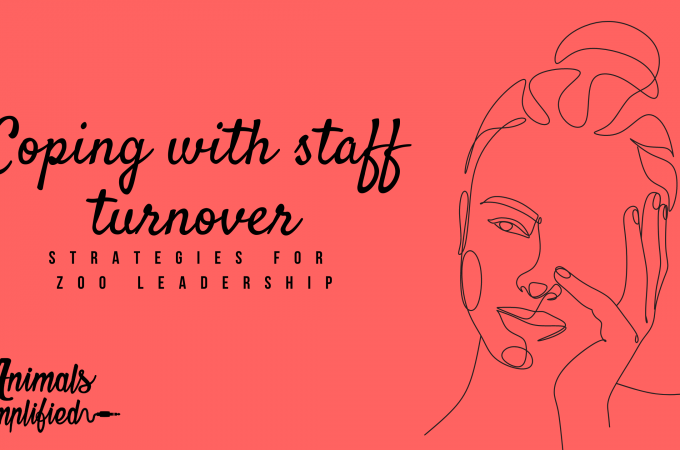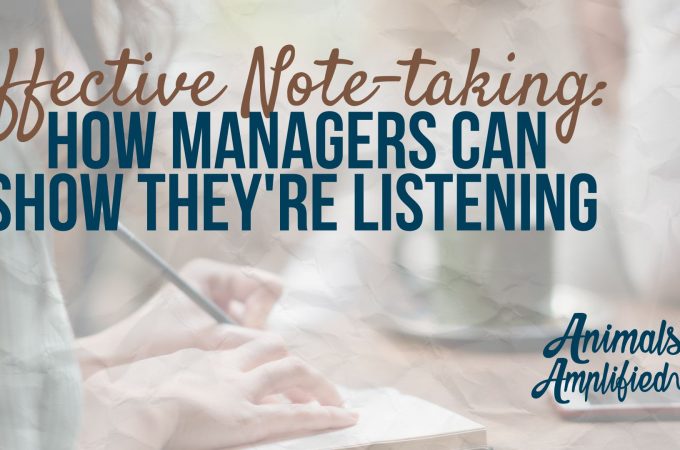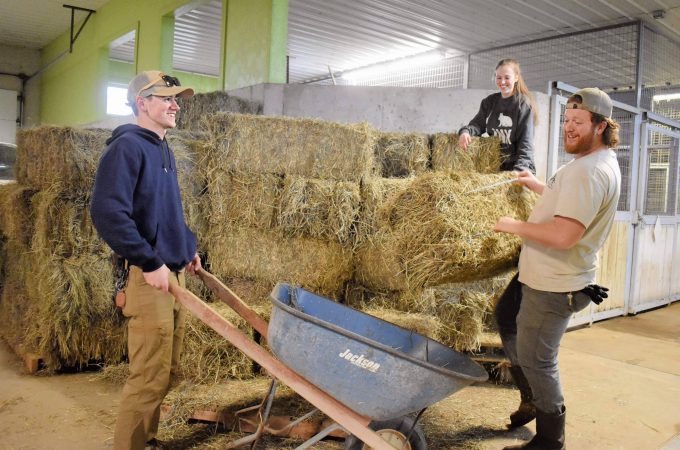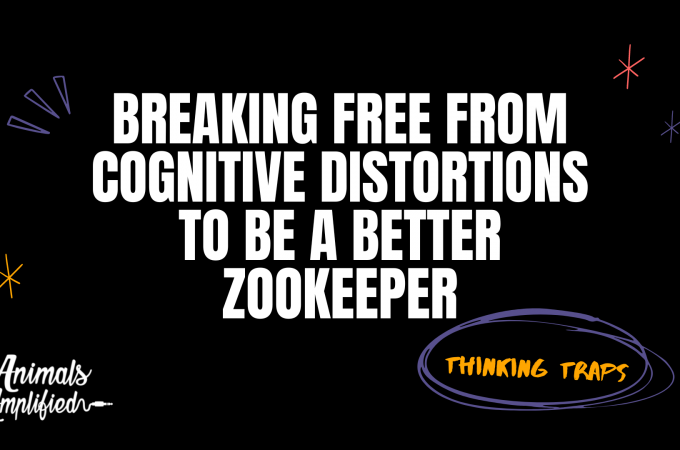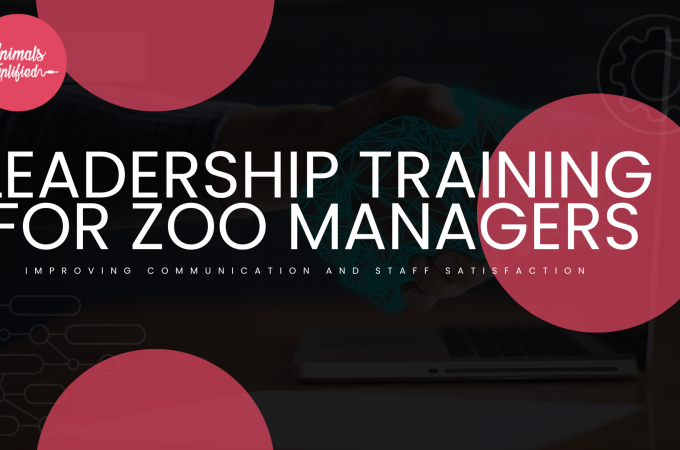
Before you quit, don’t uproot your life for an even trade.
Before you quit I have some things I’d like you to consider. I spend a lot of time writing about
- not giving up, not quitting
- not jumping over the fence
- having realistic expectations
- taking care of yourself so you can stick it out where you are
As a matter of fact, I started Animals Amplified because I wanted to help people avoid the challenges I experienced early in my career. I want people to figure out how to stay in one place instead of moving around so much. I’ve written on a lot of those challenges.
Four challenges to make sure you’re avoiding before you leave your current position
I was arrogant and thought I knew better than all my supervisors.
At times, I thought the grass was greener on the other side.
One of my mistakes was that I alienated people because I was threatened by their ideas.
I acted like a victim because I worked for difficult people.
When it’s really time for you to go:
Still there comes a time where it really is time to go. You’ve grown, you’ve learned, you’ve conquered, you’ve excelled, and you’re ready for the next big thing. Or maybe this is your first job. In that case you should make sure you’re choosing the right team and facility for you!
If you’re a hiring manager I suggest sending this to all your applicants at some point in the interview process. It’s a huge waste of your time and resources to hire and train someone. You don’t want a person who just landed at your facility by sheer luck and no thought. So send them the list and say, “Before you quit, think about these things!”
So how do you make sure you make the best choice as a prospective employee?
Recently, I posted over on the Animals Amplified page about this topic. You all seemed to enjoy it, so let’s go a little deeper on these points. First off, DO NOT APPLY TO EVERY SINGLE OPEN JOB AND TAKE THE FIRST THING YOU GET! Yes this field is hard to get into and positions are competitive. Part of the curse of the industry is that people are applying like random lightning and not being laser focused. Okay, I got that off my chest, let’s dive in.
10 things to think about before you quit:
1) Think not only about the position, but about your lifestyle and if the area fits with you.
- If you love hiking, tall trees, and mountains you might not want to move to Kansas. Maybe you love small towns and dirt roads, LA Zoo might not be your best bet. If you value taking long trips and traveling around the world, you want to find a facility with a hefty vacation package. Sometimes people love the feeling of the sand between their toes. They might feel claustrophobic without an ocean nearby, Oklahoma might not be a great fit. If you’re super close with your siblings, think about how far away you’ll be from home. Too often in this field work is life, make sure you set yourself up to have work AND life.
2) Ask A LOT of questions. You’re interviewing them too!
- As a hiring manager one of the biggest red flags is an interviewee who has no questions. This tells me they either aren’t that invested in the position or that they are so desperate to get a job they don’t care what they’re getting themselves into. These are most often the “I didn’t know that!” or the “I wish someone would have told me,” employees when they arrive at the zoo. Think about what’s important to you and your lifestyle. Then find out if the team and facility finds those things important too! You can also use questions to highlight your experience.
3) Know what your deal breakers are and ask about them in a respectful way.
- Deal breakers are things that make you want to quit. For me, they are managers who don’t respond to emails in a timely fashion, coworkers who are victims, core values that don’t get talked about or enforced, and the word “no”. Okay, I can handle a no, now and then but I don’t like it. Before you quit, think about the things you feel like are non-negotiables. Then find a way to ask about those things in a respectful and yet still straightforward way. For example, if I want to find out about “no” answers I might ask, “Would you say you have a yes culture?” or maybe, “If someone wanted to build a new enrichment item what would the process be?”
4) Do your research. It’s a small field, somebody knows somebody. Find someone who will share the good, the bad, and the ugly.
- When my employees, friends, or clients are looking for a job, I do my best to introduce them to someone I trust. Then I ask that person to share “the good, the bad, and the ugly” about the facility. I’m sure some hiring managers hate that because it has the potential to drive away good applicants. Hiring managers, you don’t want someone coming to work at your facility only to find out the ugly and quit. So before you quit, do your research! Also take it with a grain of salt. I relish working for and with difficult people, it’s a challenge. I also enjoy owning what’s within my circle of influence. For others, that’s a no go deal breaker, so we might have completely different experiences working for the same person.
5) Think long term. I personally don’t think keepers really hit their stride and start growing until about 2 years into a position, before you quit, are you willing to wait that long to grow and develop?
- Considering the average turnover rate of positions around the United States in all industries is about 2-3 years, this is a big dream, but in my experience the first year of anywhere is a learning year. You may have prior experience but you don’t know that team, those animals, and that facility. The second year is all about figuring out how you fit into the new facility, work with the new animals, or work with the new people. It’s a year of sewing the tapestry together. Year three is when the magic happens, trust is established, relationships are forged, efficiency is at its peak, and the newbie can really start making waves on the scene. So make sure you understand what long term is for you and what long term is for the facility. Then be realistic about your expectations. The corner office isn’t something that you can move into after 6 months.
6) Visit if you can and ask more questions.
- Lots of places offer working interviews at your cost and it’s a hefty one, but I can’t imagine moving across the country and never having visited or having no knowledge of the facility you’re moving to. So if you can make it work, get there, get with the front line staff ask them what they love about their job, ask them what they hate, ask them their perspective on the things you discovered in your research, ask them about your deal breakers, ask them about how long it will take for you to be a contributing member of the team, ASK QUESTIONS!
7) Make sure you’re running to a position and not just away from where you’re at.
- Desperation and fear are dangerous things to motivate decision making. So when you’re feeling like you can’t stay at your current position even a second longer you start making choices based on desperation and fear. When you do that, you aren’t very good at really weighing your options, doing your investigating, and thinking through what’s important to you. The only thing that’s important is not being where you are. Before you know it you’re in the new place and you’re not happy there either. Before you quit, slow down, do the work to get to a stage of acceptance at your current facility and then start strategically filling out applications.
8) Find a mentor you can talk to in the field to weigh your options who will give you frank and straightforward answers.
- I have a tribe of friends and peers that I can call on to help walk me through different situations. Some of them are cheerleaders. They’ll tell me I’m doing great no matter what. They’ll pump me up, cheer me on, and make me feel amazing. Then I have the question askers. They ask me a ton of questions to help lead me through the situation, getting me to think critically about the decision. Then I have the straight shooters. They’ll tell me I’m wrong, making a bad choice, or not thinking clearly. I also have worst case scenario thinkers, risk takers, those who believe in the power to manifest greatness, and the skeptics. Before I quit a job, I’m calling them all. The cheerleader will help me brag in my resume. The question asker and the straight shooters will make sure I’m sending my resume to the right place! Every single person in my tribe provides amazing perspective and insight.
9) Change isn’t easy and it starts with you. Chances are the challenges you’re having in one place will be similar in others.
- Many of the challenges we face at our facility are people problems, and people are everywhere. So chances are you’ll run into another difficult person. There’s no unicorn perfect place or person that never makes a bad decision or does something you don’t like. There will always be things you don’t like and you have to learn how to process and deal with those things. In hindsight, most of the moments where I thought, “I can NOT do this anymore,” are laughable in perspective. They didn’t end up being so big that they overshadowed the benefits and the awesomeness of what I experienced at those facilities. Once you start working on what’s within your circle of influence things everywhere will be more positive. Before you quit think about those things and reflect on how you think you’ll feel about them in 10 years.
10) Know or at least have an idea of what growth and development looks like to you and whose responsibility it is!
- This is something that as a hiring manager I find incredibly frustrating. People say they want growth and development, but when I ask them what that means to them they don’t really know. It’s not solely your manager’s job to help you grow and develop. You need to understand what you value, what gets you excited, what you want to learn more about and do what’s within your power to grow in those areas. Network with the people you admire in your field, sign up for webinars, read books, read articles, and own your own destiny.
Remember, I’m just a PM or email away.
Animals Amplified exists to help trainers and animals find their happy and ultimately reduce turnover in our industry because that’s what our animals need most.
P.S.
If you’re thinking about jumping ship, I highly encourage you to talk to your supervisors and their supervisors. Let them know where you’re struggling and what you’re doing to work on making it better. Ask their perspectives, how do they cope with that challenge? Learn from them, listen, and in the end you might not feel like walking the plank anymore!

